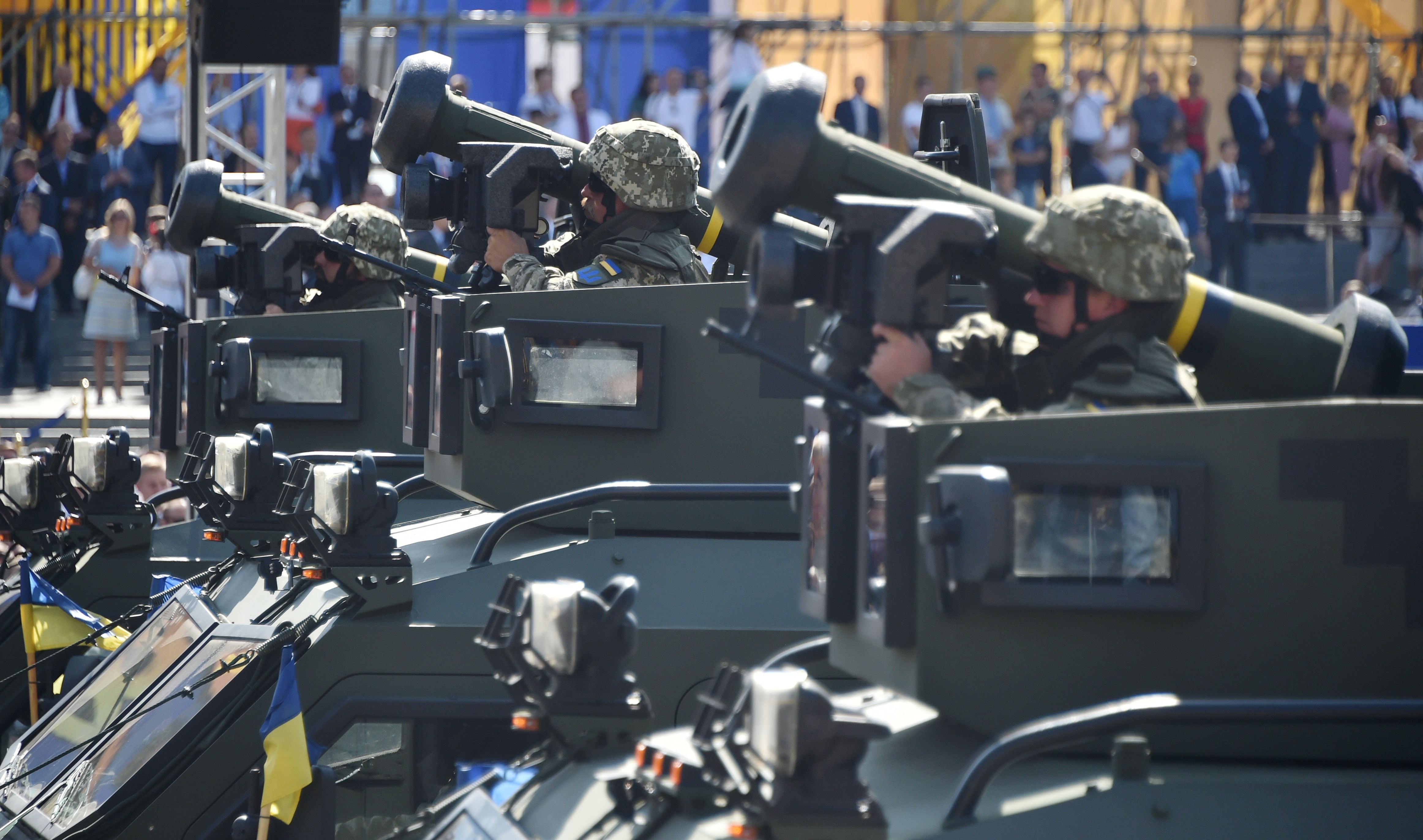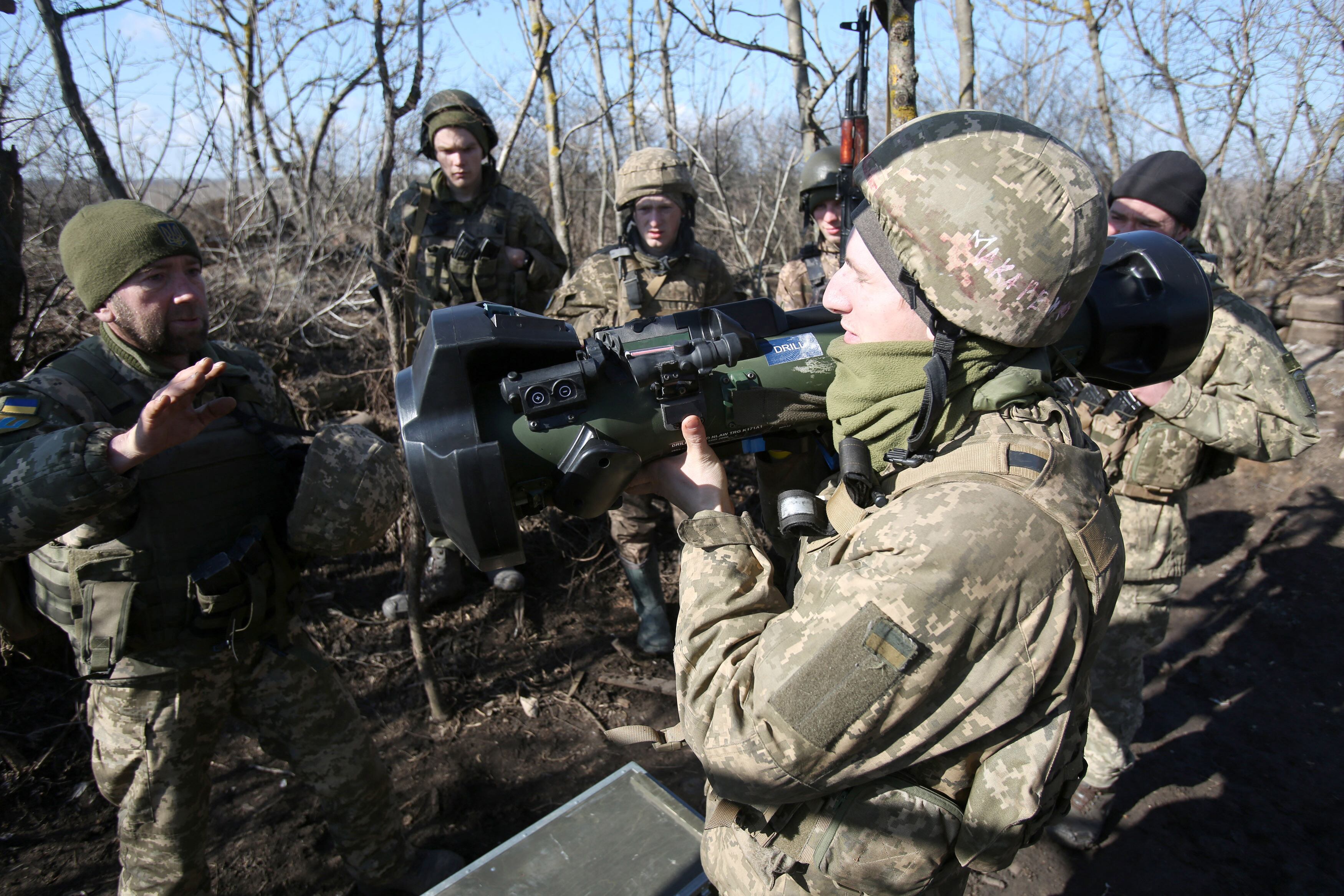WASHINGTON ― Russia’s invasion of Ukraine has disrupted the market for a broad range of critical materials essential to U.S. munitions and other defense industry products, spurring hundreds of millions in Pentagon spending to shore up supplies, a senior defense official told Defense News in an interview this month.
“With the invasion of Ukraine, there are certain materials that come out of both Russia and Ukraine that are critical to our munitions [where] the market has become disrupted, and it’s just not functioning,” said Deborah Rosenblum, a Pentagon official performing the duties of assistant secretary of defense for industrial base policy.
Bottlenecks linked to the war are making vital materials scarce and driving up prices, she said.
Mineral shortages and the broader economic backlash from Russia’s invasion of Ukraine on Feb. 24 are due in part to unprecedented sanctions against Russia from Western nations and come as the world is already reeling from inflationary and supply chain pressures. And they’re just what the Pentagon’s defense industrial office was rebuilt to navigate.
Congress restored industrial policy from the deputy assistant secretary-level to the assistant secretary of defense-level through the 2021 defense policy law, as the coronavirus pandemic showed how crippling supply chain issues could be and made mainstream the idea that U.S. dependence on China for critical materials is a national security problem.
President Joe Biden has carried over some concerns about domestic manufacturing from the Trump administration and its hardline on China. While Biden’s China-focused National Defense Strategy hasn’t been made public, Rosenblum said its emphasis on “building enduring advantages” encompasses the defense-industrial base.
“It’s really about making sure that the defense industrial base is strong, but it’s also looking hard at where some of our supply chain vulnerabilities are,” such as a dependency on critical materials whose supply is dominated by China, Rosenblum said. “This is playing itself out, actually, in Ukraine.”
Rosenblum is the assistant defense secretary for nuclear, chemical and biological defense programs. In May, Biden named Laura Taylor-Kale, an Obama administration trade official, his nominee for the industrial policy job. The Senate Armed Services Committee hasn’t announced a hearing date for her.
RELATED

The office has been tracking supply chain constraints and market volatility exacerbated by the conflict for a variety of strategic and critical materials.
The minerals in focus include aluminum; titanium alloys and semi-finished parts; noble gases such as neon, xenon, and krypton; and a variety of minor metals that include magnesium, tantalum, germanium, and silicon metal, according to Rosenblum’s office.
Russia and Ukraine together produce 70% of the world’s neon, critical to making semiconductors, Mark Zandi, chief economist at Moody’s Analytics, told AP. That is especially worrisome because the world, and automakers in particular, are already enduring a shortage of computer chips.
Russia and Ukraine together supply 13% of the world’s titanium, used to make passenger and fighter jets, and 30% of the palladium, which goes into cars, cellphones and dental fillings, Zandi said. Russia also is a major producer of nickel, used to produce electric car batteries and steel.
The Senate’s annual defense policy bill, which the Armed Services Committee advanced Thursday, would authorize $1 billion in funding for the National Defense Stockpile in fiscal 2023 to “acquire strategic and critical minerals currently in shortfall,” per a summary of the legislation. The Pentagon submitted a legislative proposal to Congress earlier this year asking for $253.5 million for FY23.
As part of its $40 billion Ukraine-related spending measure, approved in May, Congress has already included $600 million for Biden to invoke the Defense Production Act to deal with industrial base constraints for faster missile production and expanded domestic capacity of strategic and critical minerals.
Of that funding, Rosenblum said the Pentagon plans to use $100 million to mitigate “production line hiccups” for systems the U.S. military has sent Ukraine from its own stockpiles and seeks to replenish ― such as the Stinger anti-aircraft missile, made by Raytheon Technologies, and Javelin anti-tank missile, made by a Raytheon-Lockheed joint venture.
Rosenblum didn’t discuss specifics, but said some of these measures would be “capital intensive” and that she plans to “move out pretty quickly” with contracts, possibly before the end of this summer.
RELATED

On the materials front, cooperation with allies in areas like rare earth elements, and other critical minerals has produced positive results, according to the Pentagon. Thales Australia in December ramped up production of 155mm M795 artillery ammunition for the U.S. Army after the Pentagon certified Australian-made TNT for its use.
The industrial policy office’s critical minerals work dovetails with its “deep dive” studies into defense supply chain vulnerabilities for the U.S. and allied militaries as they look to speed up their replenishment munitions and other weapons sent to Ukraine from their own supplies.
“What we’re looking at is, in order to replenish those as quickly as possible, where are there some vulnerabilities in the supply chain that would prevent us from doing so in a faster timeframe than what industry initially was saying?” Rosenblum said.
Since 2017, U.S. law has recognized that America’s national technology and industrial base, or NTIB, also comprises three of its closest historical allies Australia, Canada, and the UK.
Because the Pentagon’s efforts to boost domestic industrial capacity might not come in time, Rosenblum said her office is holding “very active discussions” with those countries “to look at areas where we are feeling difficulties in our industrial base to see if there are things they can do to help us and vice versa.”
Another forum for cross-border confabs about defense industrial capacity has been the group of now more than 50 nations, convened by U.S. Defense Secretary Lloyd Austin, to donate weapons to Ukraine. The last monthly meeting of the Ukraine Contact Group happened June 15 at NATO headquarters in Brussels.
“From an industrial base perspective, it’s extremely helpful … to understand the kinds of capabilities that we ultimately are providing, and likely are going to be providing to the Ukrainians,” Rosenblum said.
Within Rosenblum’s office, there’s a deputy assistant secretary charged with international defense industrial cooperation, which recognizes the U.S. in a notional war would be fighting alongside allies, Rosenblum said.
“It is in our national security interest to make sure that they have as robust industrial bases as we do,” she said.
Joe Gould was the senior Pentagon reporter for Defense News, covering the intersection of national security policy, politics and the defense industry. He had previously served as Congress reporter.








